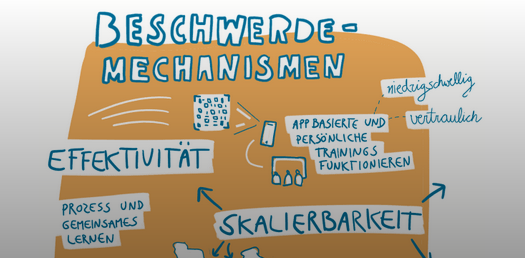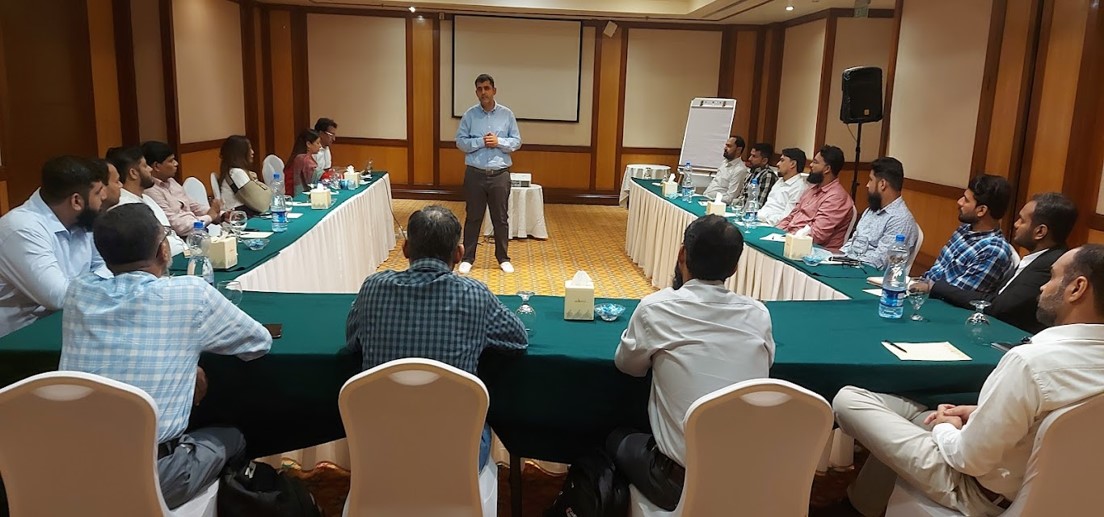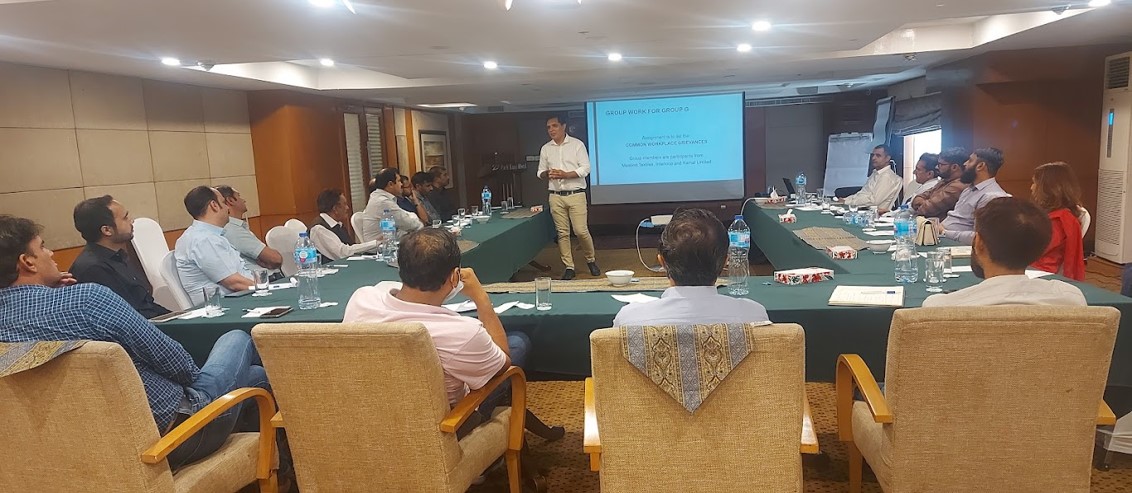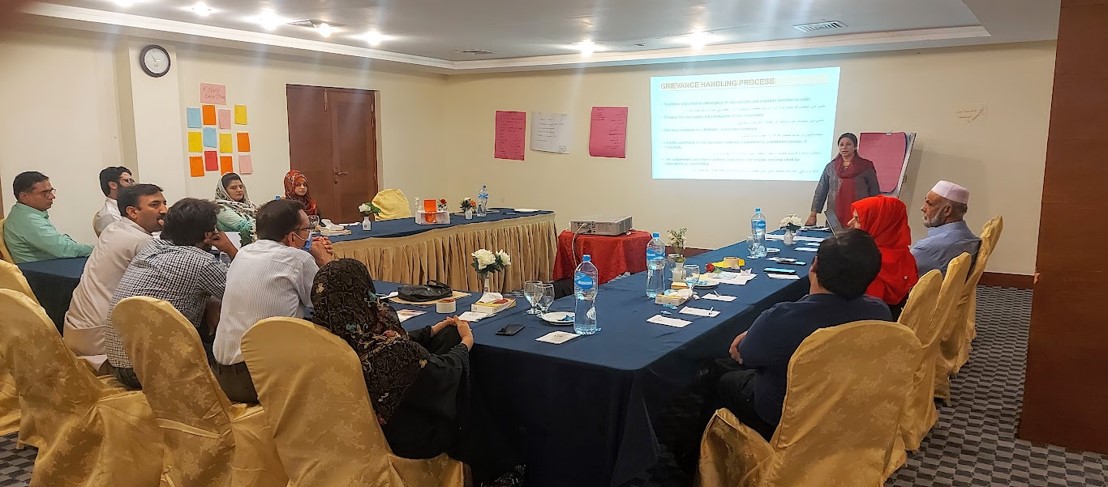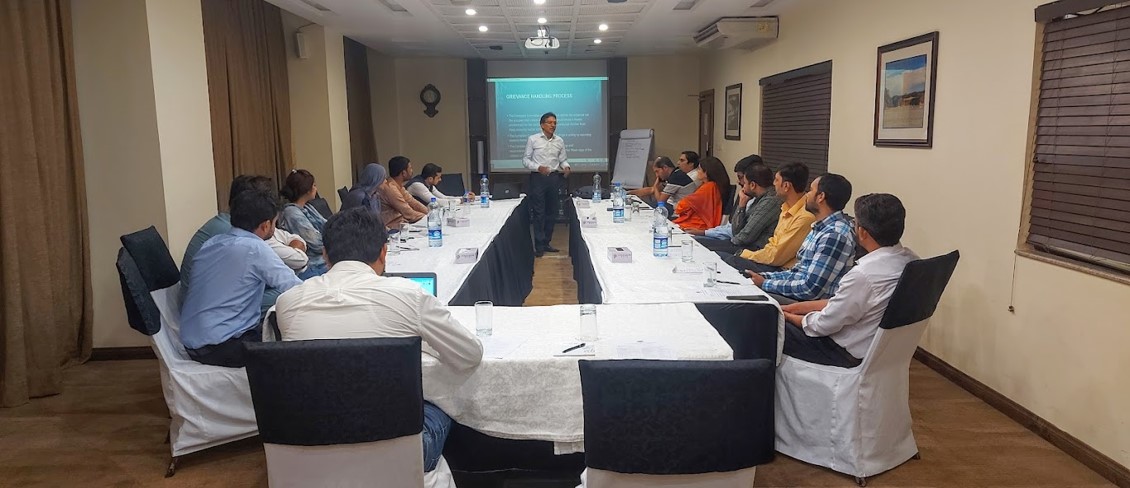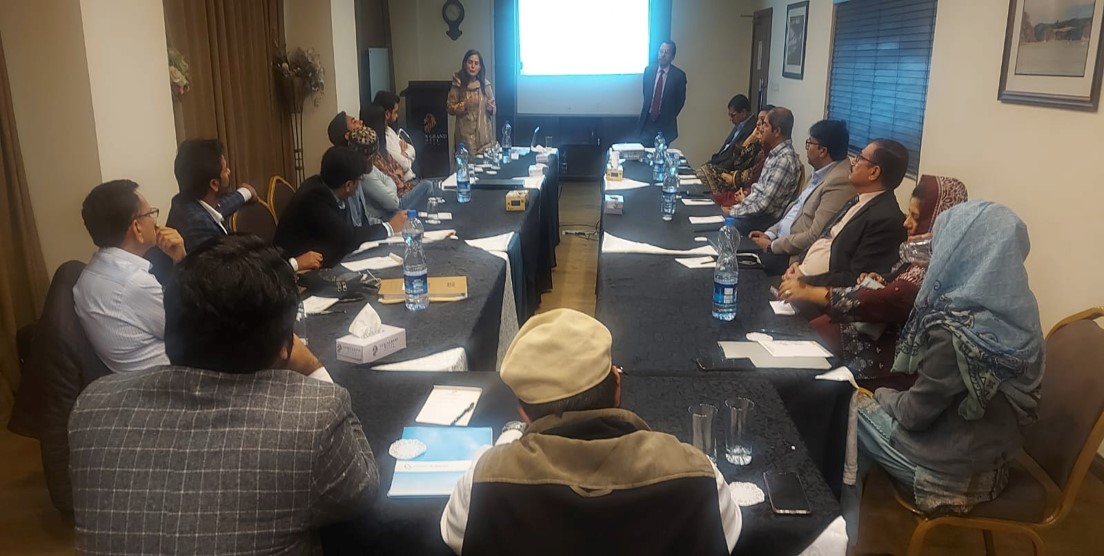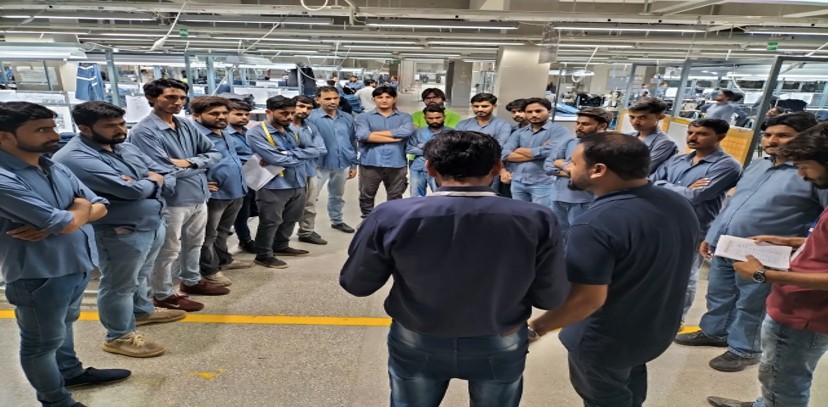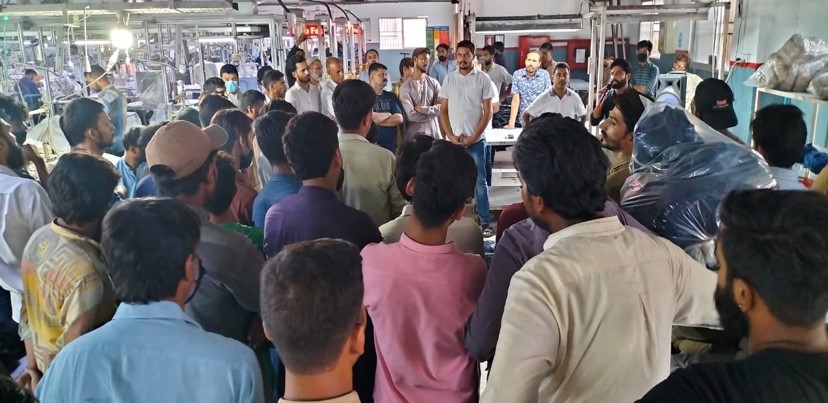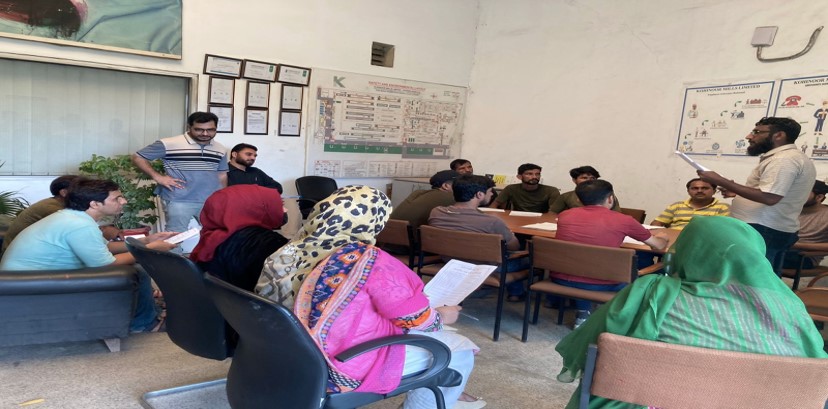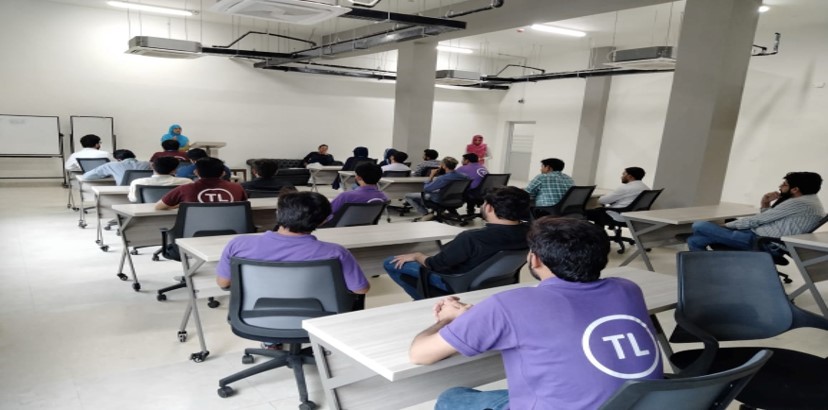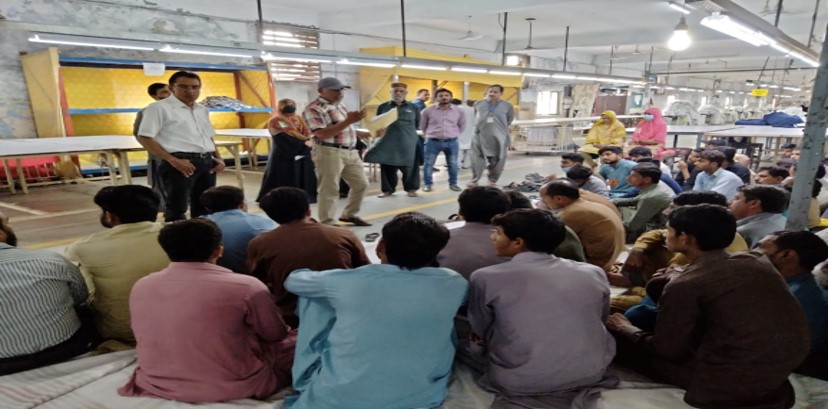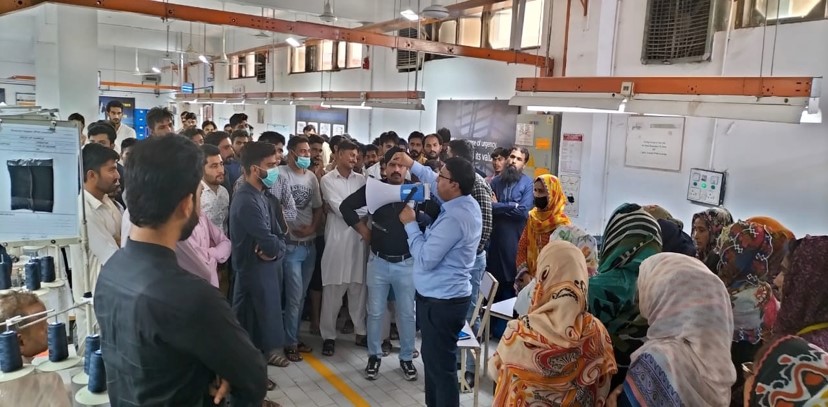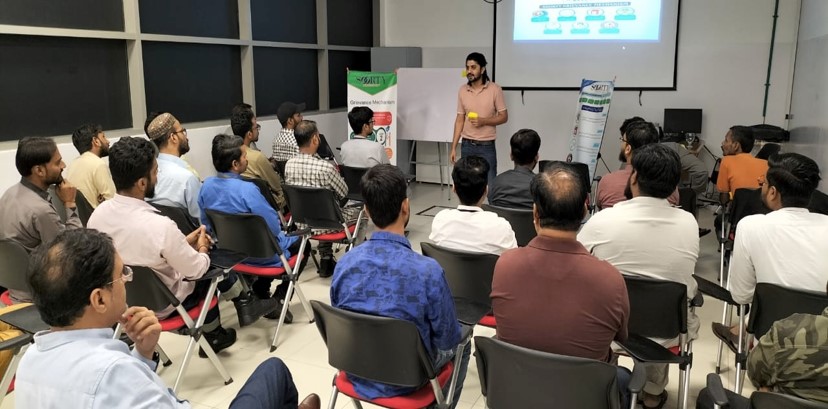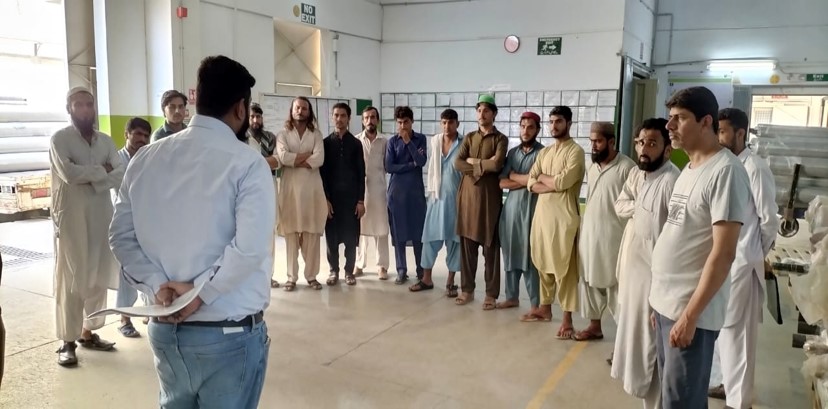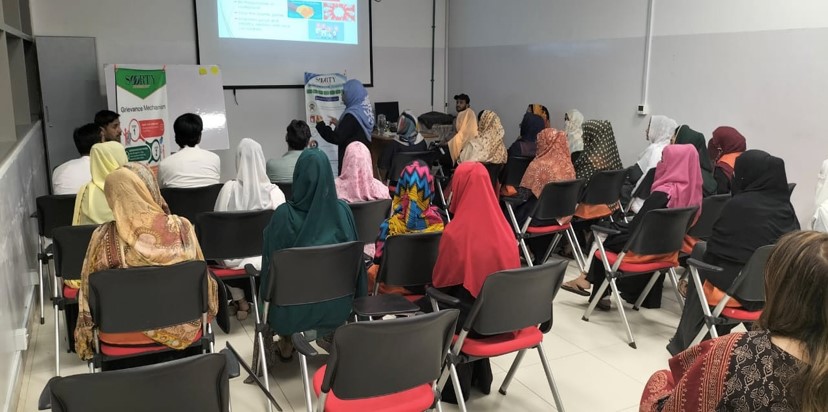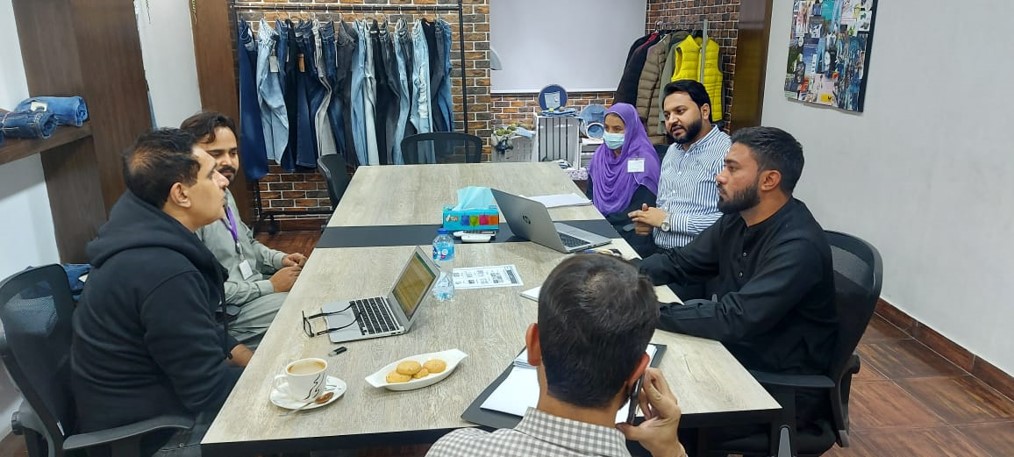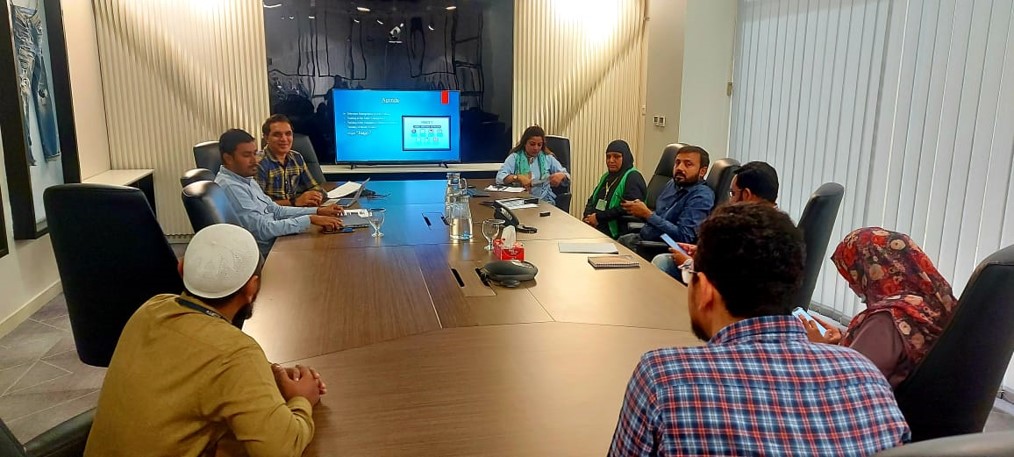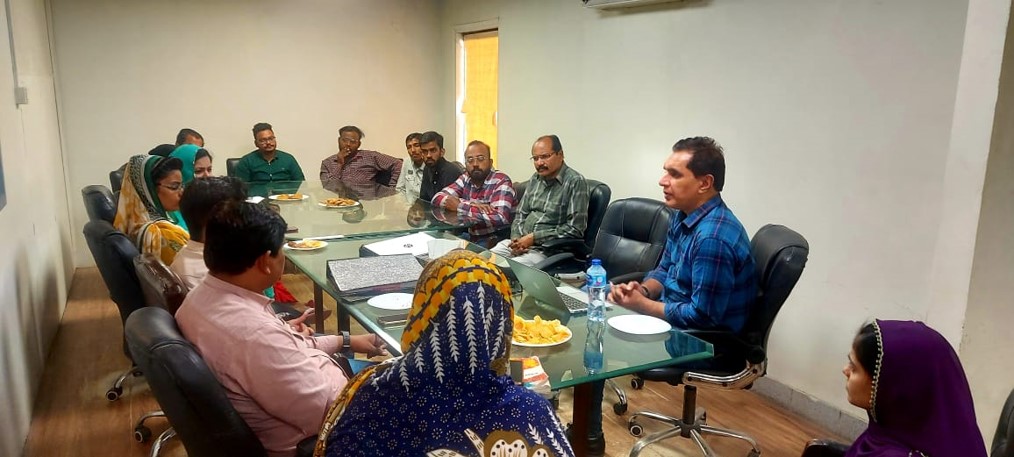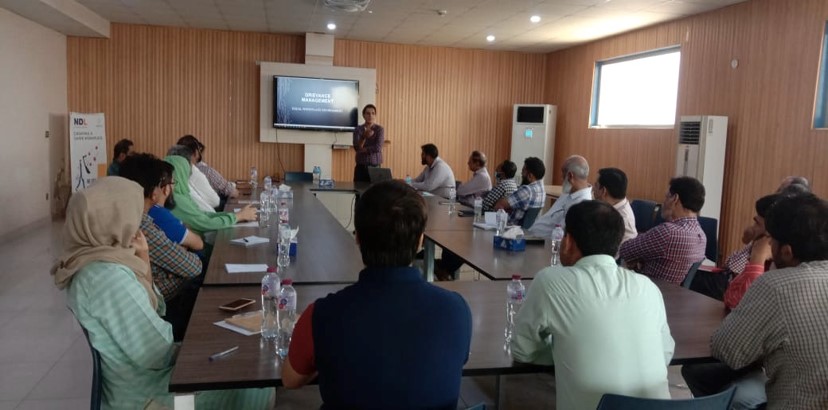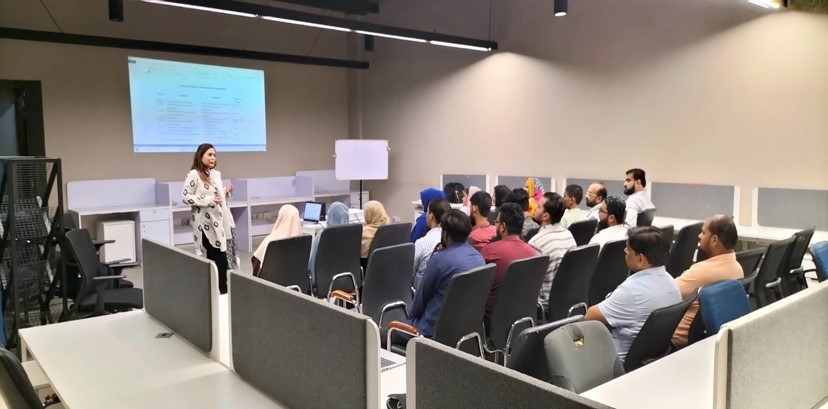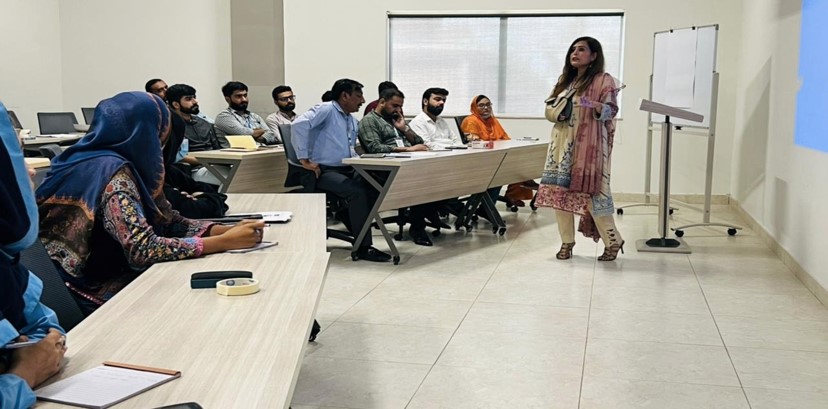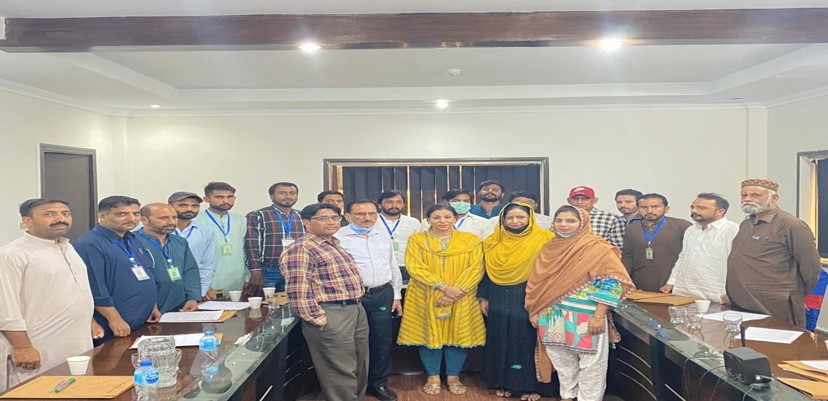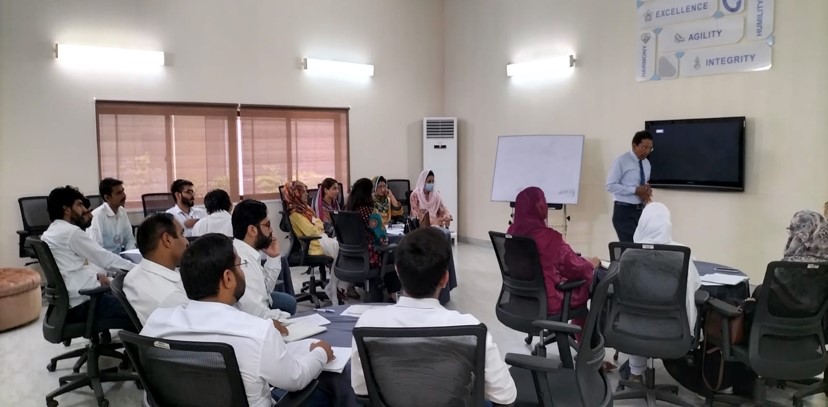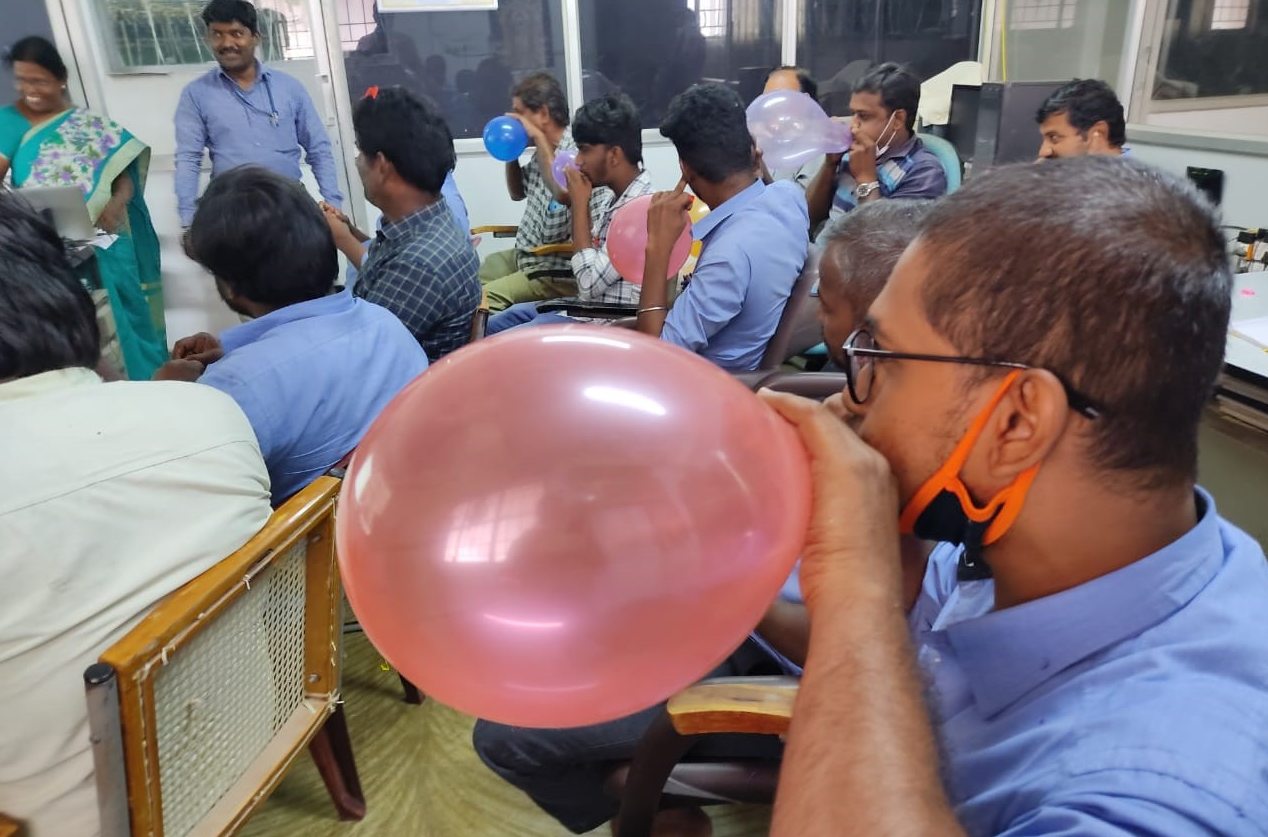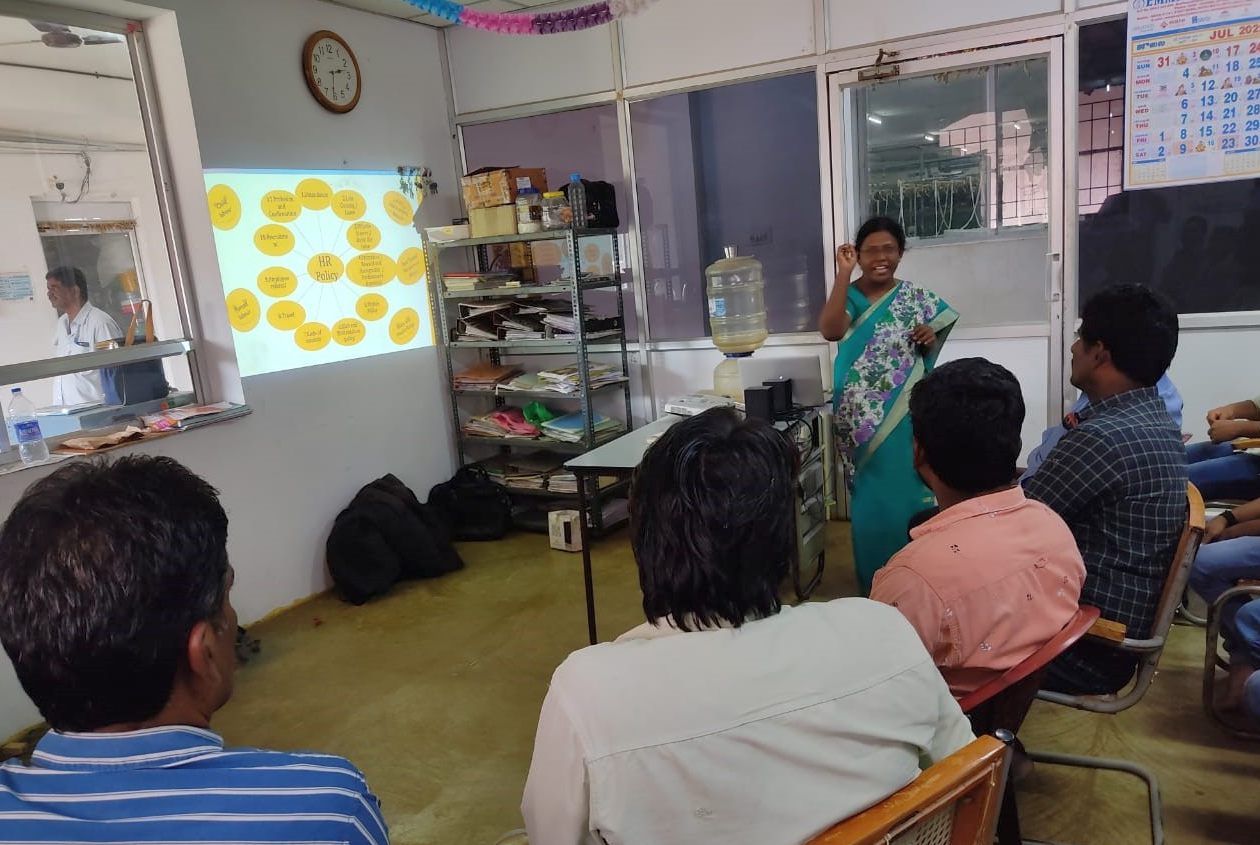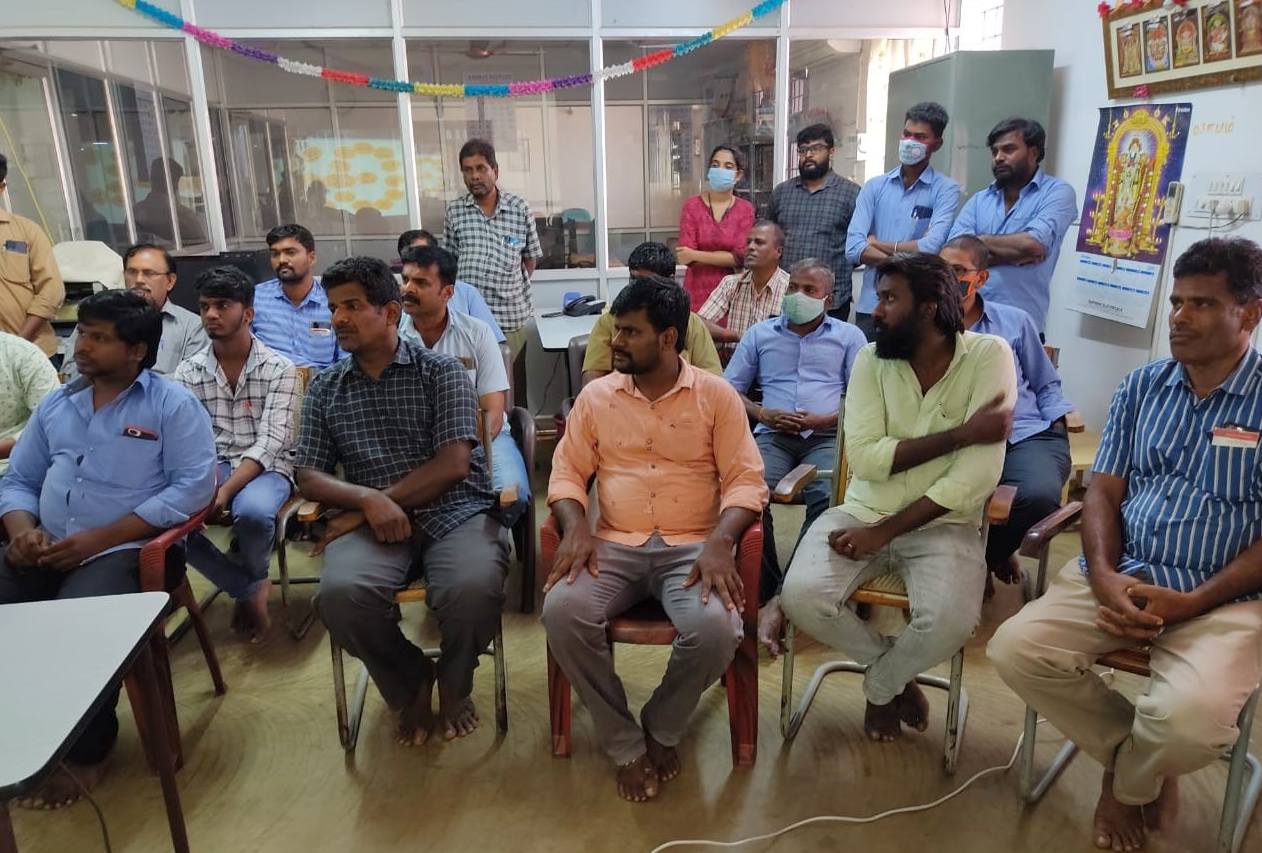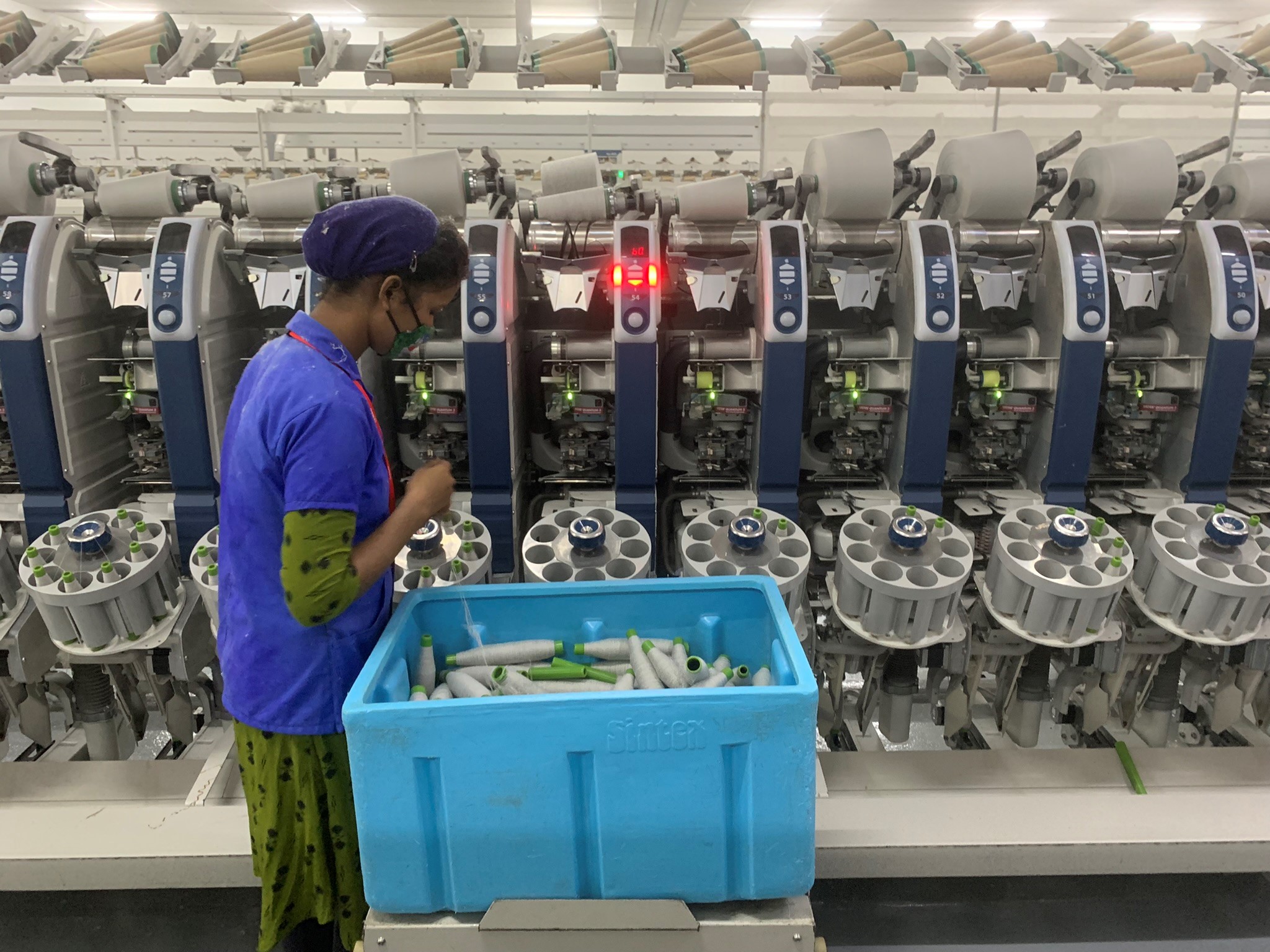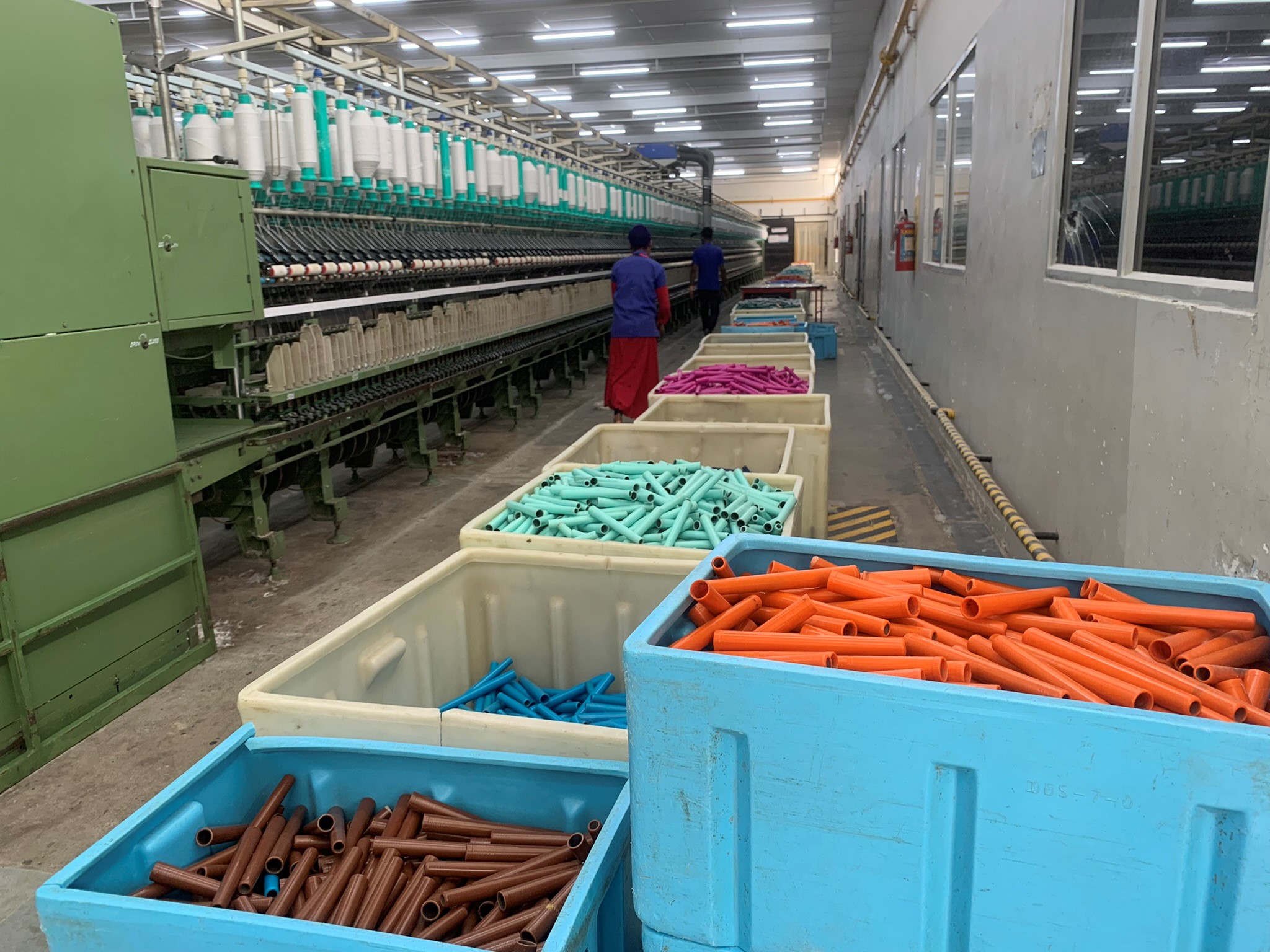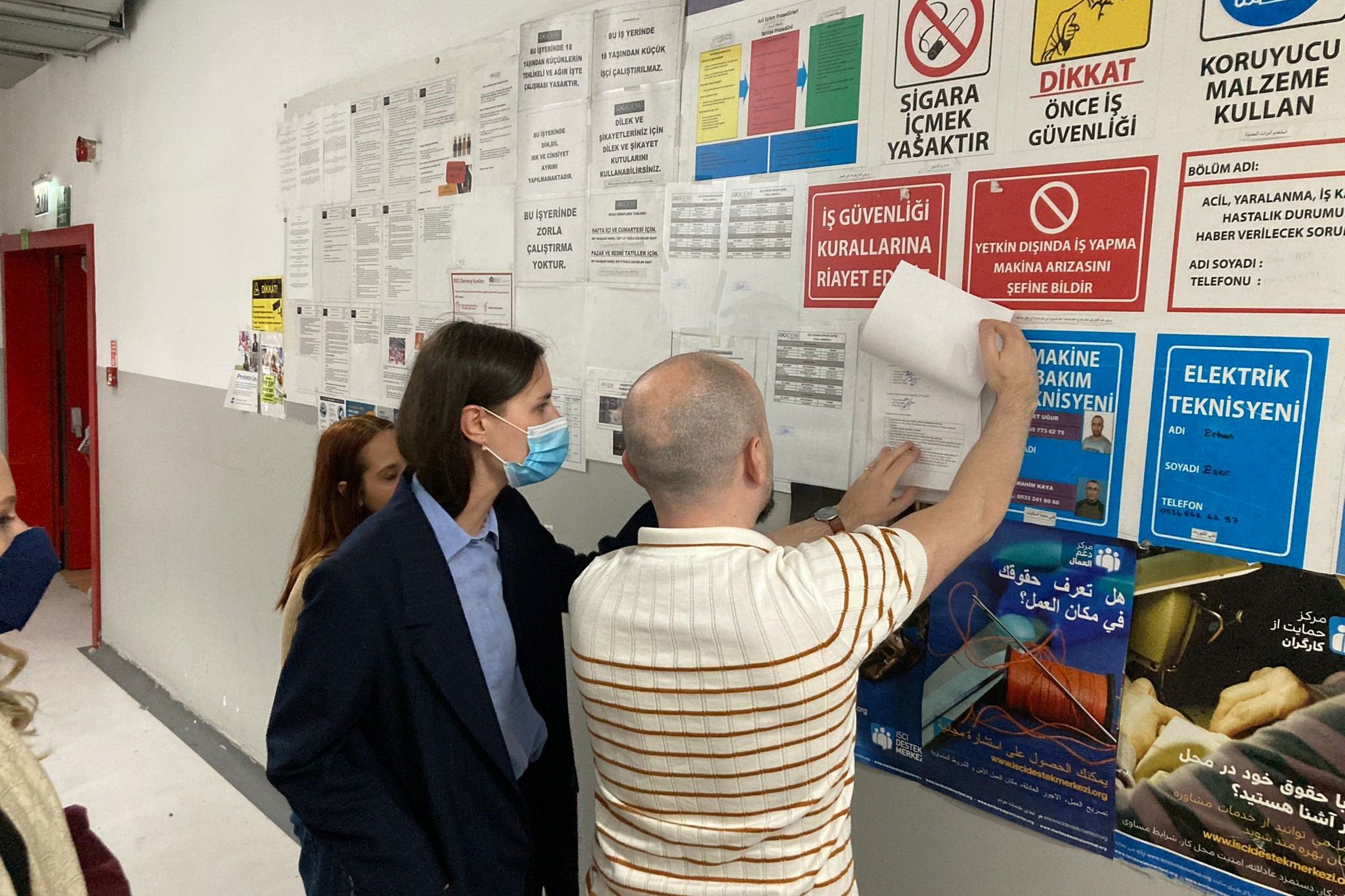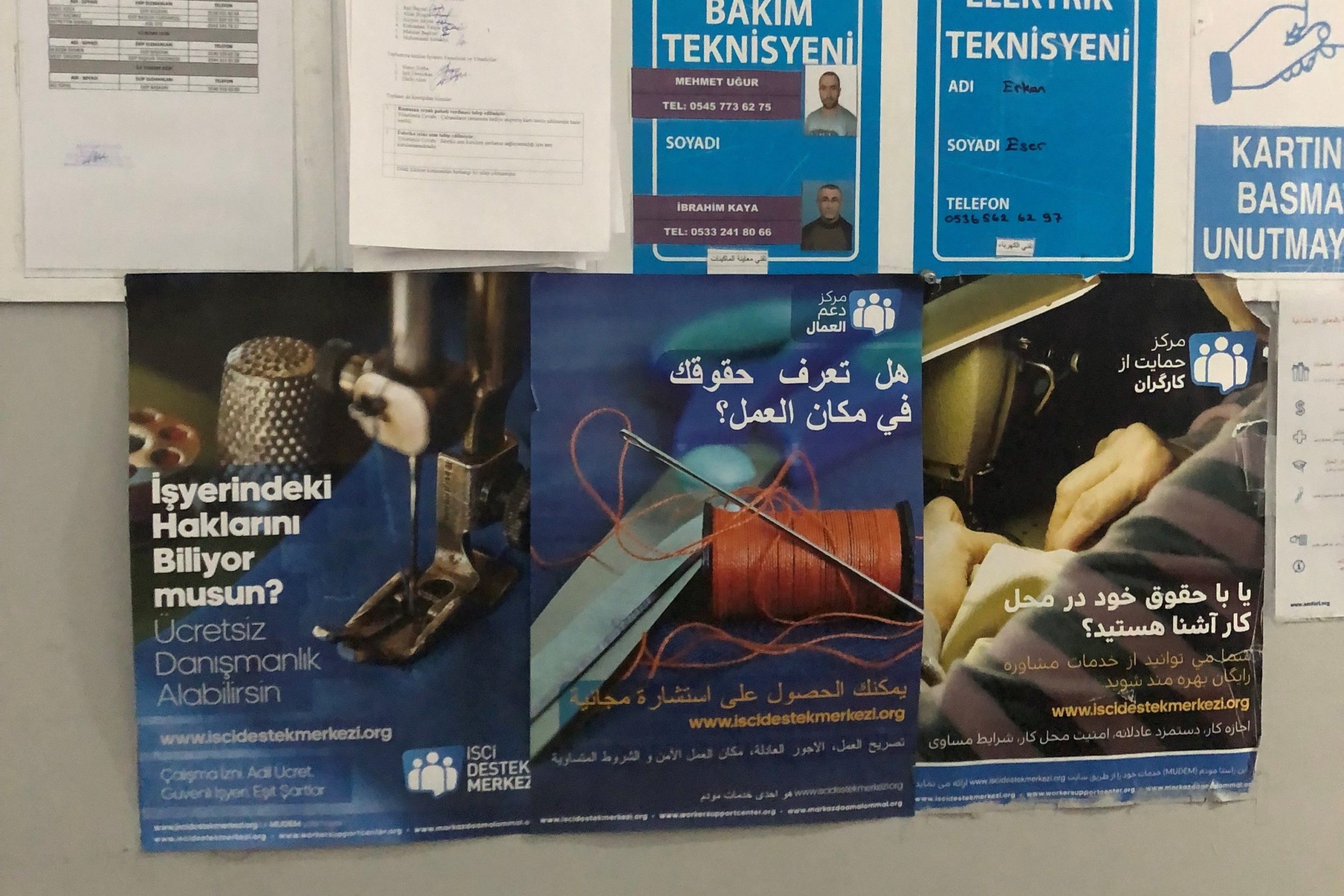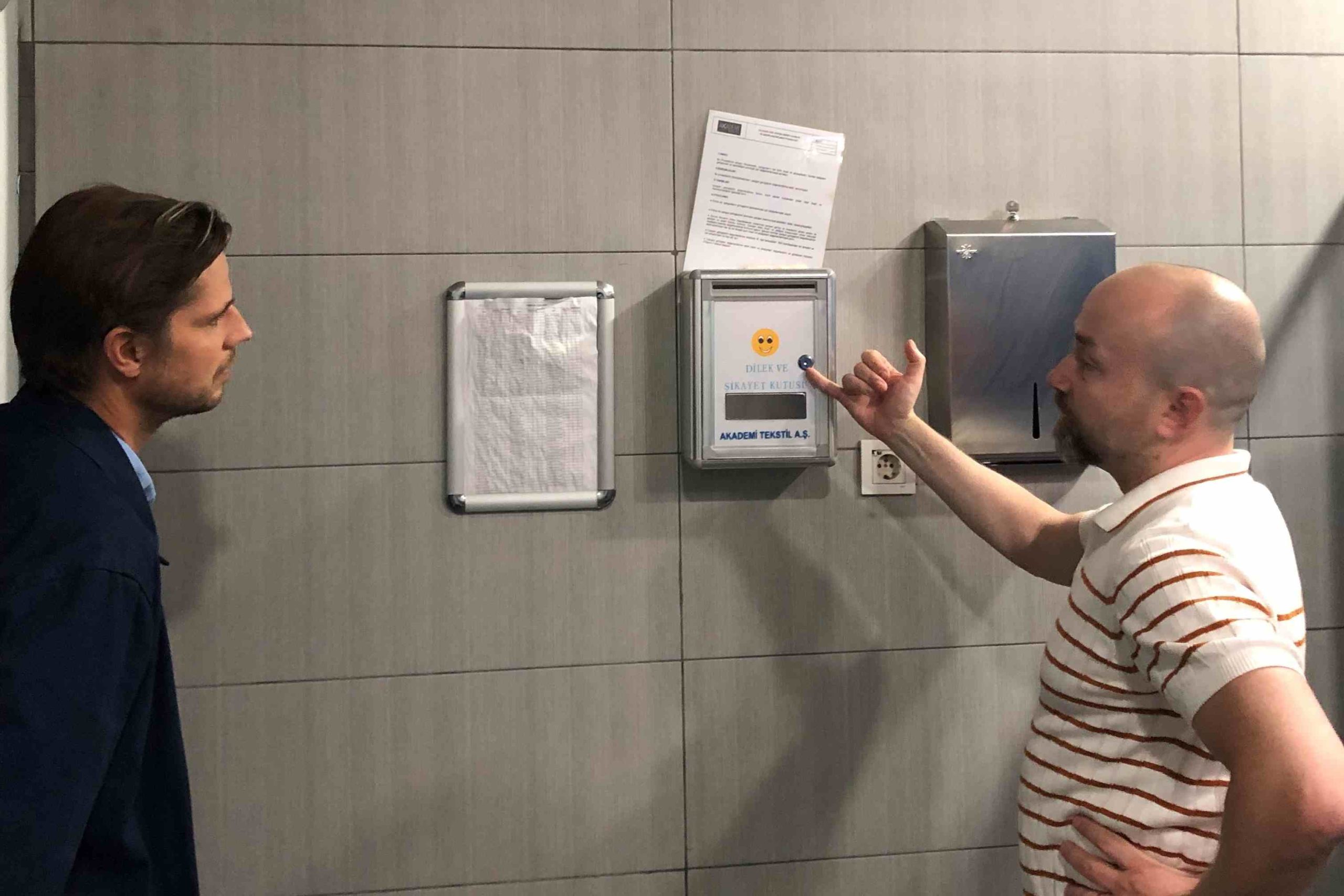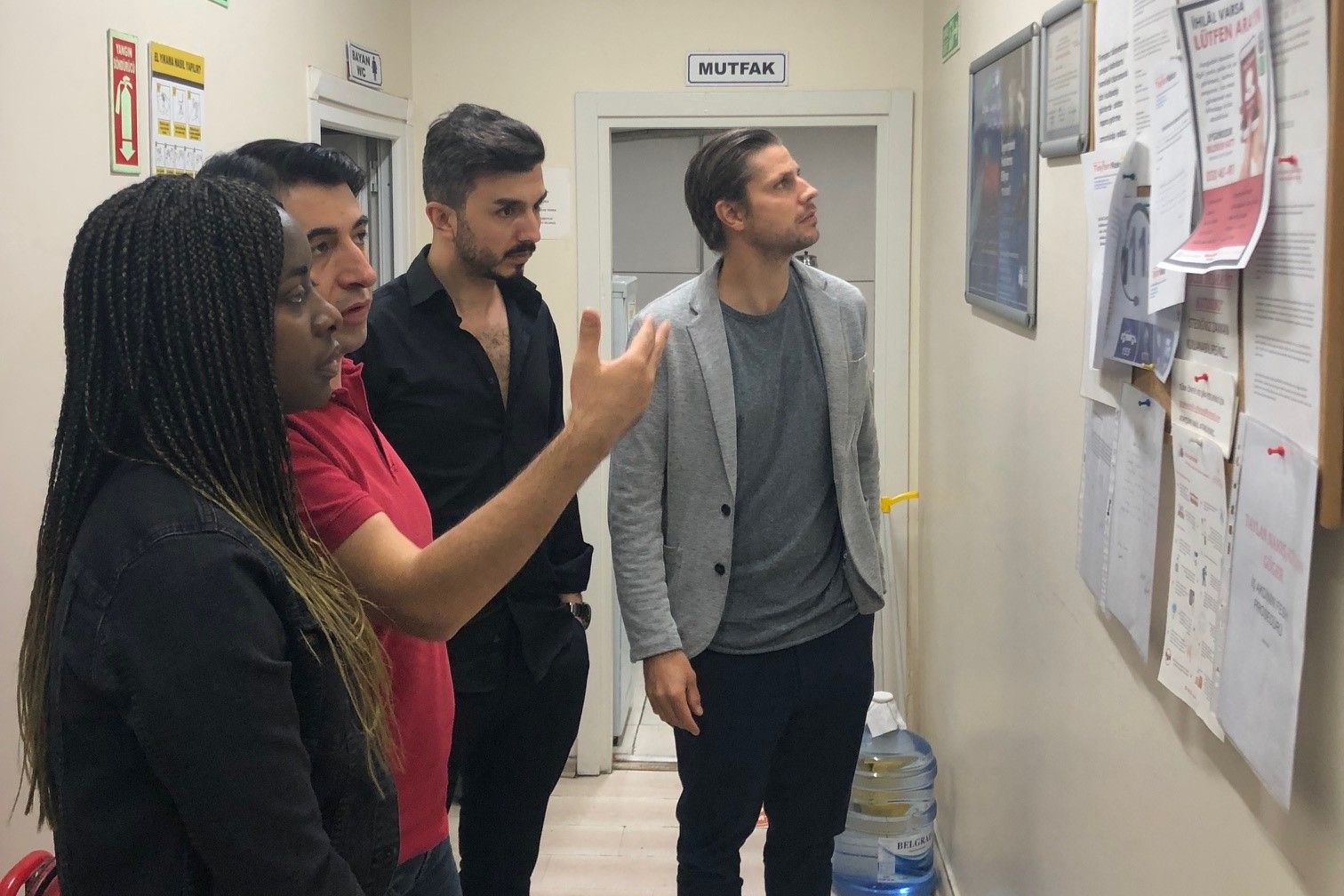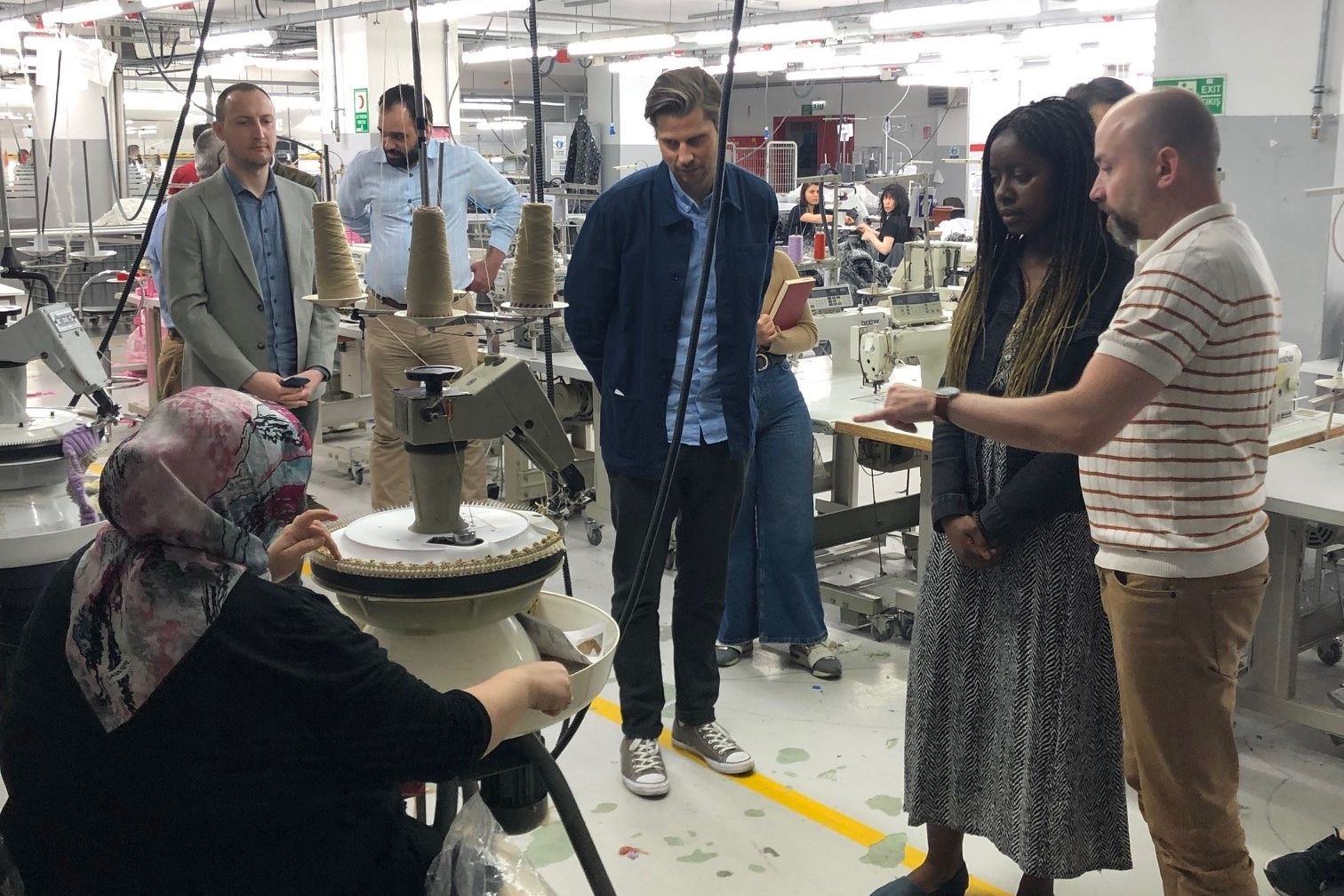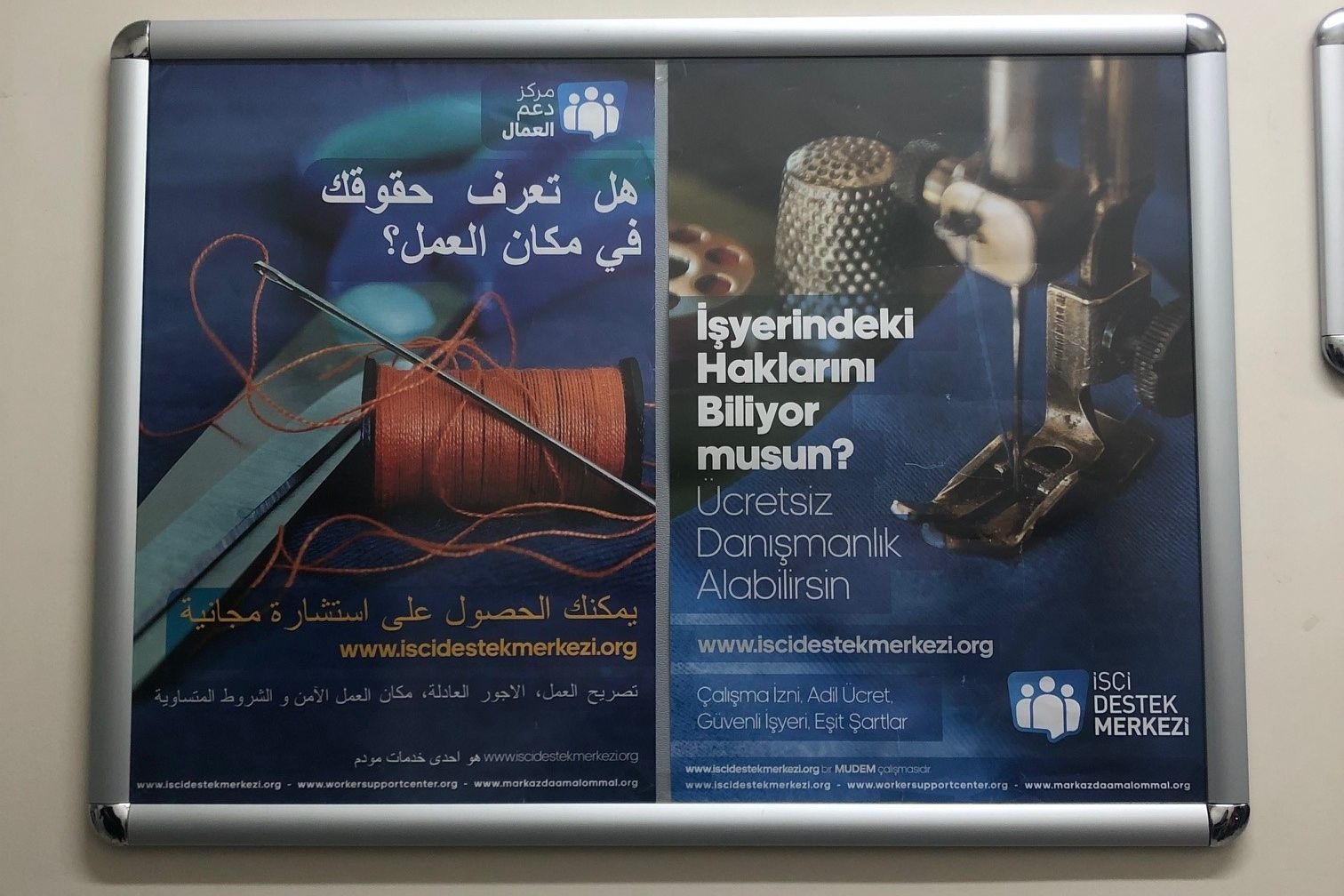Chapter 6.6
Grievances and remedy
Our projects in Pakistan, Turkey, Vietnam and India
Strengthen access to effective grievance mechanisms
Workers in the textile and garment industry, who may be adversely impacted in their work, should have access to effective grievance mechanisms as well as remedy and compensation. This is an objective of the Textiles Partnership and its members. In this they are guided by the United Nations Guiding Principles on Business and Human Rights (link) and the OECD Due Diligence Guidance for Responsible Supply Chains in the Garment and Footwear Sector (link). The Textiles Partnership is working on this at various levels.
Internal grievance structures in Pakistan
In 2022, a support programme helped a total of 16 suppliers to establish internal grievance structures. The project was primarily funded by GIZ’s bilateral TextILES programme. Partnership member Fairtrade Germany implemented the measures in Pakistan based on findings and lessons learned from their Fairtrade textile programme in India. PST member companies Primark, Takko, Kettelhack, Hugo Boss and tex idea together nominated nine suppliers for the programme.
First, a Pakistani team of four trainers underwent instruction at a training-of-trainers seminar. In the months that followed, they then conducted various training courses involving both management and workers. Very soon they hit upon a particularly successful approach: by training groups of workers as multipliers, the acquired knowledge was gradually passed down to the entire workforce in line with a mutually agreed time schedule.
„The project is well organized and has deep insight of the subject. As a management, this will help us to address issues of workers on floor and improve our working conditions. This will increase our workforce trust on company values, enhance productivity and ultimately result in low turnover and happy workplace.”
Manager HR & Compliance of a participation supplier
News
Strengthen internal factory grievance mechanisms
The aim of the module is to support suppliers in establishing and/or developing functioning internal grievance structures. The project also aims to enable management and workers to solve incidents and grievances together through dialogue.
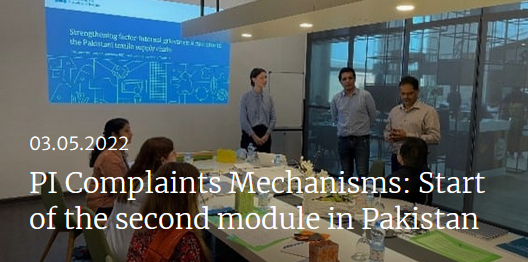

Setting up internal complaints committees at Indian spinning mills
In the second phase of the Partnership Initiative Tamil Nadu, participants supported a total of 40 spinning mills between November 2021 and March 2023 with setting up internal complaints committees (ICC) as required by law. General concerns can be raised through a Grievance Redressal Committee (GRC), while an Internal Complaints Committee deals with grievances relating to the sexual harassment of women in the workplace. A total of 2087 complaints/incidents (1444 in the ICC, 643 in the GRC) were thus resolved.
The aim of the project was to systemically improve working conditions in the textiles and garment industry, especially for women and girls. It was implemented by FEMNET e.V. and the Indian NGO Social Awareness and Voluntary Education (SAVE), with support from Tchibo, Otto Group, Hugo Boss and KiK.
Further information on the Partnership Initiative Tamil Nadu can be found on the PST website.
Partnership members can use the Fair Wear Foundation’s complaints mechanism
If grievances cannot be addressed and resolved at the local level, an important role can be played by the complaints mechanisms of purchasing companies or sector and multi-stakeholder initiatives. These serve as a kind of safety net.
Under the German Supply Chain Due Diligence Act, companies have been required since January 2023 to have a grievance procedure in place. This must facilitate confidential reporting of human rights and environmental violations that may arise in connection with the economic activities of a company, as well as its direct and indirect suppliers. Alternatively, companies can participate in a cross-company approach.
Since April 2021, the Textiles Partnership has been cooperating closely with the Fair Wear Foundation (FWF), which implements such a cross-company mechanism. As a result of this cooperation, Partnership companies now also have the opportunity to implement the FWF mechanism in their supply chain. The first phase of this project came to an end in October 2022 and is now being rolled out to other countries, companies and production sites.
Further information on the Partnership Initiative on Grievance Mechanisms can be found on the Textiles Partnership website.
Grievance mechanisms for Syrian workers in Turkey
With the help of Primark, C&A, H&M and KiK, the Textiles Partnership supported the Worker Support Center (WSC) of the Turkish NGO MUDEM – Refugee Support Association. The WSC serves as a local contact point and complaints mechanism for Syrian textile workers in the Turkish textile industry. Here they will have the opportunity to draw attention to abuses in the workplace and to obtain legal support.
‘MUDEM has been doing tremendously important work for years, especially for Syrian refugees employed in the Turkish textile industry. We are pleased to have been able to help ensure continuation of this support. As a result, Syrian workers in Turkey continue to have access to legal support.’
Thomas Ahlers, Manager Corporate Responsibility at Primark
‘We in the Textiles Partnership attach great importance to promoting local civil society contact points for grievances. These act in the interests of workers, they know their concerns and challenges. Local proximity and language facilitate access and use. Primark, Orsay and C&A show that collaborations like these between purchasing companies and local organisations really work and deserve ongoing support.’
Lara Hutt from the Partnership Secretariat
News
Continuation of the Worker Support Center
Orsay, Primark and C&A are campaigning to ensure that Syrian textile workers in Turkey can continue to use the complaints mechanism of the Turkish non-governmental organisation MUDEM-Refugee Support Center and report abuses in the workplace.
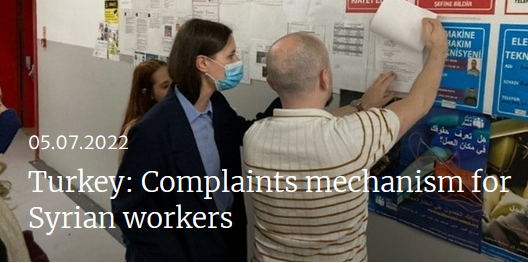

Better address grievances from shared factories
The Textiles Partnership deliberately decided against adopting an own grievance mechanism. Instead, the PST supports existing approaches of like-minded organisations to enhance and scale up relevant mechanisms. It also promotes close cooperation between different organisations, which from 2023 onwards will specifically focus their efforts on the task of identifying potential synergies and initiating appropriate harmonisation processes.
The Accountability and Remedy Project of the Office of the High Commissioner for Human Rights (OHCHR) says this on the subject: ‘Developers and operators of non-State-based grievance mechanisms cooperate proactively and constructively with each other, and with relevant partners and institutions, to enhance outreach and to promote coherent and effective systems of accountability and access to remedy for business-related human rights harms, including in a cross-border context.’
Fair Wear, amfori and the Textiles Partnership have already taken the first step: in September 2022, the three organisations signed a Memorandum of Understanding on dealing with grievances in shared factories affecting several member companies. In line with the recommendations of the OHCHR, this cooperation should help to test coordinated cooperation between grievance mechanism providers, identify synergies and harmonise the handling of grievances across the sector.
News
Cooperation of amfori, Fair Wear and Partnership for Sustainable Textiles
amfori, Fair Wear and the Partnership for Sustainable Textiles (PST) strengthen their collaboration to jointly address workers grievances from shared factories of their various member brands.
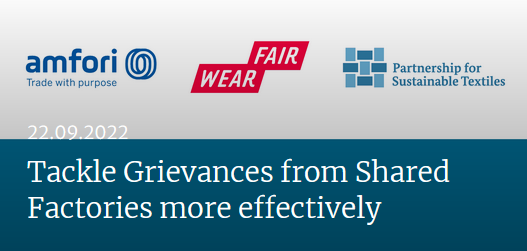

Exchange at the OECD Garment Forum and PST working meeting
At the OECD Forum on Due Diligence in the Garment and Footwear Sector in February 2022, Fair Wear, amfori and the Textiles Partnership addressed collaborative approaches to access to remedy and discussed opportunities and challenges with representatives of governments, trade unions, companies and industry initiatives.
Partnership members also dealt with the topic at the PST working meeting in May 2022. The discussion focused on how to make grievance mechanisms more effective and how to facilitate access to workers.
News
“Complaints are not the end of the world, but important”
How can complaints mechanisms be made more effective and easier to access for workers? This question was discussed by around 30 Partnership members at a workshop.
